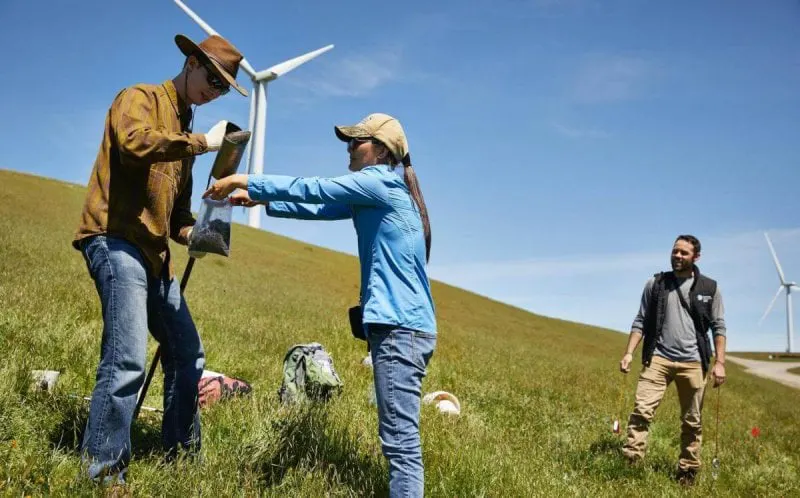Viewpoint: ‘Agriculture is the only carbon emitting sector with the potential to become a net emissions sink’
Viewpoint: ‘Agriculture is the only carbon emitting sector with the potential to become a net emissions sink’


Of the major emitting sectors, agriculture, forestry, and other land use (AFOLU) is currently the only one with serious potential to become a net emissions sink, meaning it can pull more greenhouse gases out of the atmosphere than it emits. This makes AFOLU pivotal to reaching net zero emissions.
To achieve a stable climate, we need to put more emphasis and resources toward transforming AFOLU from a net source of emissions to a net sink—the kind of focus that is making transformative change achievable in sectors like power generation and transport.
Three examples provide a sense of the possibilities. Solar energy now enables low-cost electrification almost anywhere with big implications for irrigation, cold storage and food processing; bio-innovations, such as the Nobel prize-winning CRISPR-CAS gene editing technologies, hold tremendous promise; and digital innovations are now rapidly permeating the developing world.
Overall, positive innovation perspectives along with a solid track record of high returns to research and development investments in AFOLU indicate that a major innovation push in AFOLU and food systems has the potential to meet the ambitious sequestration goals that are implicit in a pledge for net-zero emissions globally, while also improving livelihoods, human nutrition, and the environment.
This is an excerpt. Read the original post here.

 | Videos | More... |

Video: Nuclear energy will destroy us? Global warming is an existential threat? Chemicals are massacring bees? Donate to the Green Industrial Complex!
 | Bees & Pollinators | More... |

GLP podcast: Science journalism is a mess. Here’s how to fix it

Mosquito massacre: Can we safely tackle malaria with a CRISPR gene drive?

Are we facing an ‘Insect Apocalypse’ caused by ‘intensive, industrial’ farming and agricultural chemicals? The media say yes; Science says ‘no’
 | Infographics | More... |

Infographic: Global regulatory and health research agencies on whether glyphosate causes cancer
 | GMO FAQs | More... |

Why is there controversy over GMO foods but not GMO drugs?

How are GMOs labeled around the world?

How does genetic engineering differ from conventional breeding?
 | GLP Profiles | More... |

Alex Jones: Right-wing conspiracy theorist stokes fear of GMOs, pesticides to sell ‘health supplements’




 Viewpoint — Fact checking MAHA mythmakers: How wellness influencers and RFK, Jr. undermine American science and health
Viewpoint — Fact checking MAHA mythmakers: How wellness influencers and RFK, Jr. undermine American science and health Viewpoint: Video — Big Solar is gobbling up productive agricultural land and hurting farmers yet providing little energy or sustainabilty gains
Viewpoint: Video — Big Solar is gobbling up productive agricultural land and hurting farmers yet providing little energy or sustainabilty gains Trust issues: What happens when therapists use ChatGPT?
Trust issues: What happens when therapists use ChatGPT? Fighting deforestation with CO2: Biotechnology breakthrough creates sustainable palm oil alternative for cosmetics
Fighting deforestation with CO2: Biotechnology breakthrough creates sustainable palm oil alternative for cosmetics California, Washington, Oregon forge immunization alliance to safeguard vaccine access against federal undermining
California, Washington, Oregon forge immunization alliance to safeguard vaccine access against federal undermining 30-year-old tomato line shows genetic resistance to devastating virus
30-year-old tomato line shows genetic resistance to devastating virus The free-range chicken dilemma: Better for birds, but with substantial costs
The free-range chicken dilemma: Better for birds, but with substantial costs ‘You have to treat the brain first’: Rethinking chronic pain with Sanjay Gupta
‘You have to treat the brain first’: Rethinking chronic pain with Sanjay Gupta
